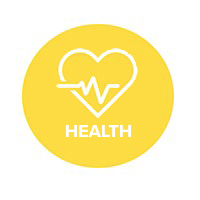Beyond Recovery: Towards 2030
Beyond Recovery: Towards 2030
Our Evolving Response
The COVID-19 pandemic has evolved into the worst global health and socio-economic crisis of our times. It has put pressures on all societies, by distracting daily lives, access to basic services, ability to conduct business, and social interaction.
The pandemic has put a serious strain on Kosovo’s already fragile healthcare and social protection systems. Immediately after the outbreak of the pandemic, UNDP Kosovo mobilized resources to provide support in terms of the most urgently needed medical products and equipment in consultation with the Ministry of Health and in coordination with other development partners. The joint efforts resulted in the quick delivery of 40 urgently needed mobile ventilators for the University Clinic and 52,300 PCR tests for the National Institute for Public.
UNDP's Offer 2.0

The COVID-19 crisis has shown the critical importance of effective and responsive governance systems and institutions. In a time when human rights and access to justice could be compromised due to increasing quarantines and restrictions on movement, UNDP works to ensure that civil rights are protected. UNDP works with Kosovo institutions and civil society to ensure that core public services continue to be delivered without being interrupted by restrictive measures introduced to slow down the spread of the virus.
Read more...

COVID-19 has exacerbated the pre-existing fragility of Kosovo’s economy. The restrictive measures have shut down large parts of Kosovo’s economy. Services, which account for a large part of the economy, have been particularly hard hit by restrictions in hospitality, retail and in person service sectors. Highly dependent on tourism, Kosovo is also vulnerable to the effect of ongoing travel restrictions and potential changes in consumer behaviour. Travel and tourism are among the most affected sectors, with tourism experiencing the second biggest loss of jobs in Kosovo in 2020. Nevertheless, the pandemic has presented the opportunity to rethink and restore balance between people and planet through supporting climate action and green transformation in Kosovo.
Read more...

While the pandemic began as a health crisis, it quickly turned into a multi-dimensional crisis with far-reaching socio-economic implications. The speed and scale of the spread, the severity of cases, and the societal and economic disruption is dramatic. The number of families in Kosovo who receive social assistance has been on the rise as the pandemic spreads, but the existing institutional social safety net is inadequate to respond to the needs of vulnerable people; a significant proportion of the poor already fall through the safety net. The inadequacy of the system has become more evident with the sharp increase of social vulnerability as a result of the pandemic.

Despite its obvious negative impact, the pandemic has provided an opportunity to critically think about the quality of service delivery and modalities of such services. Virtual working and digitalization are quickly becoming a permanent feature of daily life which also expands to social services.

The COVID pandemic has put unprecedented burden on Kosovo’s already fragile health system. Immediate after the outbreak of the pandemic, UNDP Kosovo supported the institutions to procure critically needed medical supplies by securing financing from bilateral partners.

Evidence from past epidemics shows that gender-based inequalities determine how women´s and men’s health, economic equality, security and safety are affected during and after the crisis. Understanding the gender-differentiated impacts of disease outbreaks is fundamental to creating effective, equitable policies and interventions that leave no one behind.

 Locations
Locations